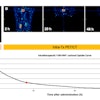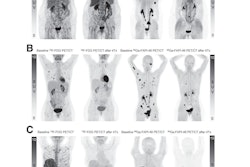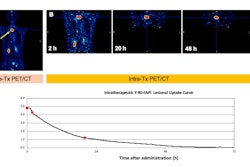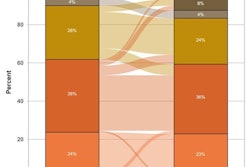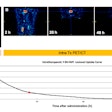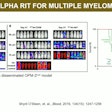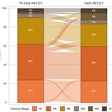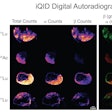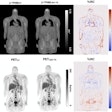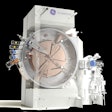An emerging radioligand therapy could be particularly effective for controlling advanced sarcoma compared to other cancers, according to research presented June 8 in a Young Investigator Award session at the Society of Nuclear Medicine and Molecular Imaging (SNMMI) meeting in Toronto.
This yttrium-90 (Y-90)-labeled fibroblast activation protein inhibitor (FAPI)-46 research comes from Helena Lanzafame, MD, and colleagues from the department of nuclear medicine at University Hospital Essen in Germany, who noted their study involved the largest Y-90-FAPI-46 cohort studied to date.
The retrospective cohort analysis included 30 patients with sarcoma, advanced metastatic cancers of the pancreas, prostate cancer, gastric cancer, squamous cell carcinoma, or cholangiocarcinoma. Study participants underwent a total of 77 cycles of Y-90-FAPI-46 therapy between June 2020 and December 2023. After treatment, the investigators documented adverse events of any grade and assessed patients' imaging response via Response Evaluation Criteria in Solid Tumors (RECIST) or PET Response Criteria in Solid Tumors (PERCIST) guidelines.
Lanzafame and colleagues reported that Y-90-FAPI-46 controlled disease progression in nearly half of the patients in the study, signaling a "specific benefit" for the advanced sarcoma patient group. The team also found that the Y-90-FAPI-46 radioligand therapy was well tolerated by patients and critical organ radiation dose levels were not reached during treatment.
Imaging control of disease by RECIST was obtained in 44% of patients, among which 35% had sarcoma. A PERCIST response was noted in 55% of patients, the researchers noted.
 Between baseline A on the left and interim B on the right, the upper row shows baseline F-18-FDG PET. Note the right axillary lymph node (white arrow) and two nodules in the right upper lobe (black arrow and white arrow head). Lower row shows disease response of the lesions by PERCIST on the interim F-18-FDG PET and by RECIST on the CT are shown. Image courtesy of SNMMI.
Between baseline A on the left and interim B on the right, the upper row shows baseline F-18-FDG PET. Note the right axillary lymph node (white arrow) and two nodules in the right upper lobe (black arrow and white arrow head). Lower row shows disease response of the lesions by PERCIST on the interim F-18-FDG PET and by RECIST on the CT are shown. Image courtesy of SNMMI.
“The results of our study have demonstrated good tolerance and promising efficacy, particularly in controlling disease progression in patients with advanced sarcoma,” Lanzafame said in a statement released by the SNMMI, adding that sarcoma patients often have limited treatment options due to the aggressive nature and poor prognosis associated with metastatic-stage disease.
FAP has been a theranostic target of interest, as it has been observed to be highly expressive on cancer-associated fibroblasts of several malignant solid tumors and sarcoma entities, according to the researchers.
“FAP-targeted radioligand therapy represents a groundbreaking approach in cancer treatment," Lanzafame concluded. "Its ability to selectively target electively to FAP-expressing cells and deliver localized radiation, minimizing off-target effects, has the potential to offer significant advantages over traditional therapies.”



